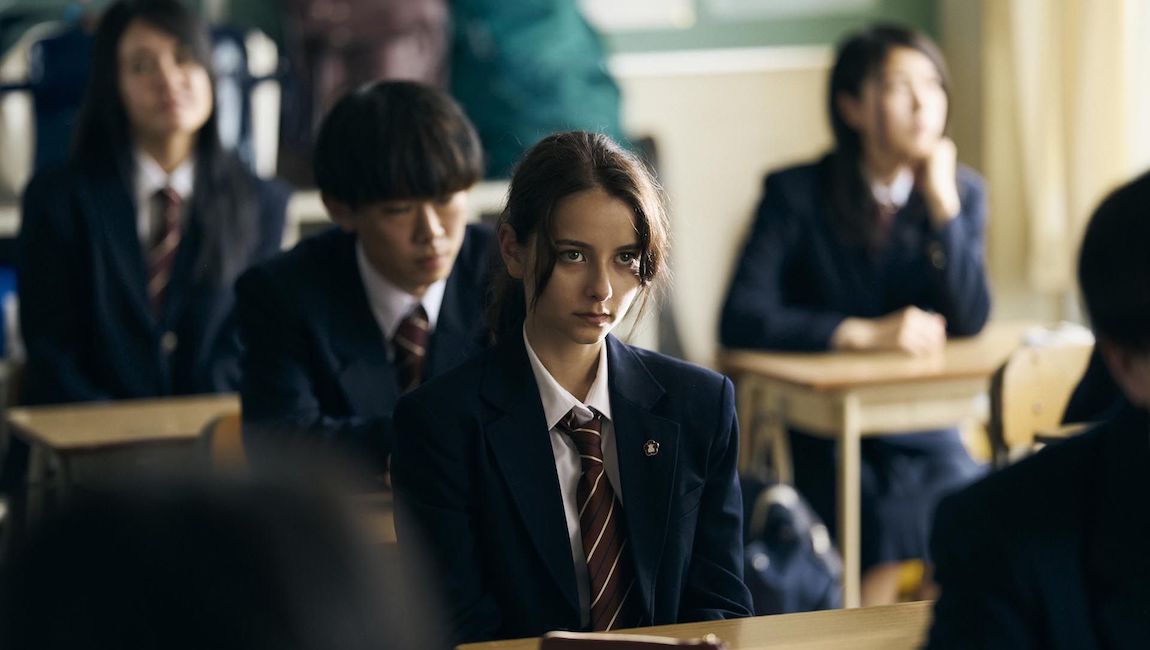In some respects, My Small Land is a film about easily perceived material differences. Sarya (Lina Arashi) holds herself at a distance from others; she clips off, in conversation, all the parts of her personality and family background that could mark her as different; she does not want to be identified, and all this marks her as a typical young protagonist in a coming-of-age narrative. As many would prefer to have it, a bildungsroman is complete when this distance is closed, when the distance between the perceptions one has of the world and of the self dissolve. But in Emma Kawawada’s debut feature, this kind of progress is impossible.
Sarya and her family are Kurds living in Japan’s Saitama prefecture. Their status as refugees is under review, and early on, the review concluded, they are informed of their application’s uncontestable rejection. Rather than a generic sense of a double life common to all teenaged experience, Sarya’s experience of the world is regulated, in a finely detailed way, by these legal structures: her freedom of movement, post-graduation plans, and working life are suddenly abstractions that can be controlled from without.
Kawawada, whose apprenticeship as a director has been informed by her connection to Bun-buku, Hirokazu Kore-eda’s production company, is working with material that usually gets transformed into a kind of case study. In Kore-eda’s own Nobody Knows, a particularly revealing reference point for Kawawada’s film, the improvisational spirit of children is leeched over time, becoming a horrifying, distant portrait of neglect. Kore-eda’s approach, he said at the time, was to make a film that would give its audience the unavoidable impression that they must “take away something” from the film. In this manner of narrative construction, immersion in the lives of the young and unprotected is a tool to develop a kind of education, one that extends but never leaves behind the film’s origin point as a newspaper story: the careful distance; the realistic, transcribed dialogue; the arc leading toward a diagnosis.
Kawawada’s method, though it shares with Kore-eda a measured tone and humanist dimension, is not guided by the inevitability of a lesson; instead, she pays particular attention to Sarya’s way of testing her environment. Despite her desire to disappear into her home country, it’s precisely this will that makes her stand out. When, due to government restrictions, the family’s situation deteriorates, Kawawada, knowing she has already constructed a scenario where the slightest word or deed is fraught with implications, does not develop writerly tension or overblown conflict, but, through careful disorganization of Sarya’s routines, shows how her education, her dreams, and her desire to connect are constructions of leisure time, which the polite fronts of immigration officers and landlords are intent on stealing away.
It’s true that Sarya’s family “teaches” her potential love interest, Sōta (Daiken Okudaira), about their culture (he is introduced via the veiled role of a partner for a class project). At times the narrative momentum is comfortable never moving beyond a holding pattern, and a late development involving Sarya’s younger brother seems misjudged. But in Kawawada’s arrangement of scenes (shot by Drive My Car cinematographer Hidetoshi Shinomiya), Sarya is not given relief or tragic summation for an external audience’s understanding. The film’s motivations are internalized so that, even as there is the requisite moment when previously thwarted meaning is exchanged between Sarya and her father, the movie’s lasting impressions are something closer to the Doinel interview at the end of The 400 Blows.
What is powerful in My Small Land is not the message it could be said to be communicating (about identity, about immigration), but the way Kawawada has developed our ability to follow the connections Sarya is making. That is to say, that if at first we might be able to pinpoint her emotions and her position as a young adult, by the end we should be able to see, rather than the contours of her legal existence, the creative capacities that she is constantly defending until they can better test the limits imposed upon her.
Published as part of Fantasia Fest 2022 — Dispatch 3.







